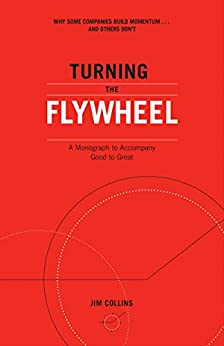More on this book
Community
Kindle Notes & Highlights
by
Jim Collins
Read between
October 7 - October 7, 2024
When caught in the doom loop, companies react to disappointing results without discipline—grasping for a new savior, program, fad, event, or direction—only to experience more disappointment.
Notice how each component in the Vanguard flywheel isn’t merely a “next action step on a list” but almost an inevitable consequence of the step that came before.
the greatest danger in business and life lies not in outright failure but in achieving success without understanding why you were successful in the first place.
One of the biggest, and most common, strategic mistakes lies in failing to aggressively and persistently make the most of victories.
For a truly great company, the Big Thing is never any specific line of business or product or idea or invention. The Big Thing is your underlying flywheel architecture, properly conceived. If you get your flywheel right, it can guide and drive momentum (with renewal and extensions) for at least a decade, and likely much longer. Amazon, Vanguard, and Intel didn’t destroy their flywheels in response to a turbulent world; they disrupted the world around them by turning their flywheels.
Test the flywheel against the three circles of your Hedgehog Concept. A Hedgehog Concept is a simple, crystalline concept that flows from deeply understanding the intersection of the following three circles: (1) what you’re deeply passionate about, (2) what you can be the best in the world at, and (3) what drives your economic or resource engine.
In Built to Last, Jerry Porras and I observed that those who build enduring great companies reject the “Tyranny of the OR” (the view that things must be either A OR B but not both). Instead, they liberate themselves with the “Genius of the AND.”
True discipline requires the independence of mind to reject pressures to conform in ways incompatible with values, performance standards, and long-term aspirations.
The only legitimate form of discipline is self-discipline, having the inner will to do whatever it takes to create a great outcome, no matter how difficult. When you have disciplined people, you don’t need hierarchy. When you have disciplined thought, you don’t need bureaucracy. When you have disciplined action, you don’t need excessive controls. When you combine a culture of discipline with an ethic of entrepreneurship, you create a powerful mixture that correlates with great performance.
No matter how far we have gone or how much we have achieved, we are merely good relative to what we can do next. Greatness is an inherently dynamic process, not an end point. The moment you think of yourself as great, your slide toward mediocrity will have already begun.


